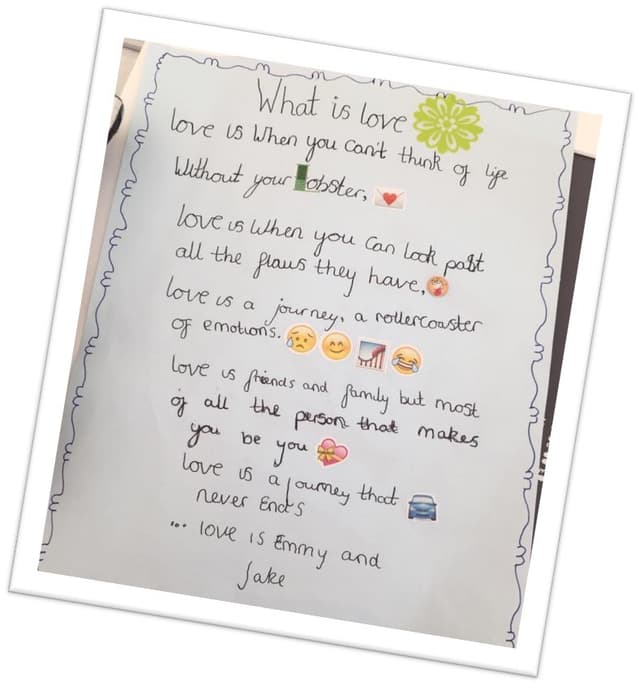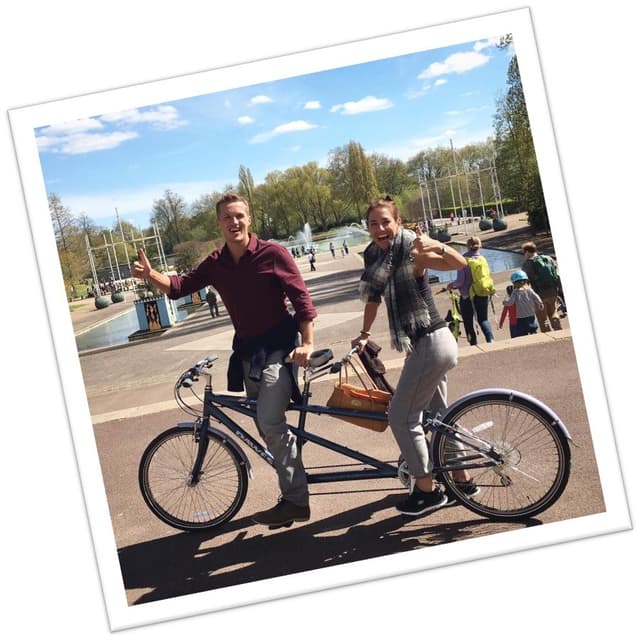A story that wakes you up in your career
The story of Emmy and Jake – or how the Royal Marsden Hospital did a little less to do a lot more
- Written by
- Lizzie Carter
- Added
- January 31, 2017
Emmy & Jake
Emmy’s crush on Jake started when she was 11. And at 13 Jake told Emmy that she was his lobster. At 16 they began dating properly and stayed together until they went their separate ways at university (which is when I met Emmy – but that’s another story). Ten years later, a few messages turned into a Facetime and the next thing they knew they were back together, with the life they had always dreamed of together finally coming true.
But then Emmy was diagnosed with stage four medullary thyroid cancer with a 20 percent chance of living five years.
This news would have completely destroyed a lot of people. But not Emmy and Jake. Instead, Jake proposed to his lobster over a cup of tea in bed and together they set about raising £10k for the Royal Marsden Hospital in London – the hospital where Emmy would be treated.
The tandemonium and being honest
Emmy wanted to show people that you can have cancer, still be active and live an exciting life. And so the idea for the tandemonium – riding 1,200 miles from London to Copenhagen on a tandem bike was born.
Throughout the training and the challenge itself, Emmy and Jake were honest. At times, painfully so. Showing the reality of Emmy’s illness, the symptoms and the treatment through candid blogs.
Soon the media were interested and suddenly Emmy and Jake’s £10k target had been smashed. So they made it £20k. And then they smashed that. Then £50k. And then they smashed that. And now after only a few months, they’re nearly at £100k and have just won JustGiving’s award for Fundraising Team of the Year.
The Royal Marsden
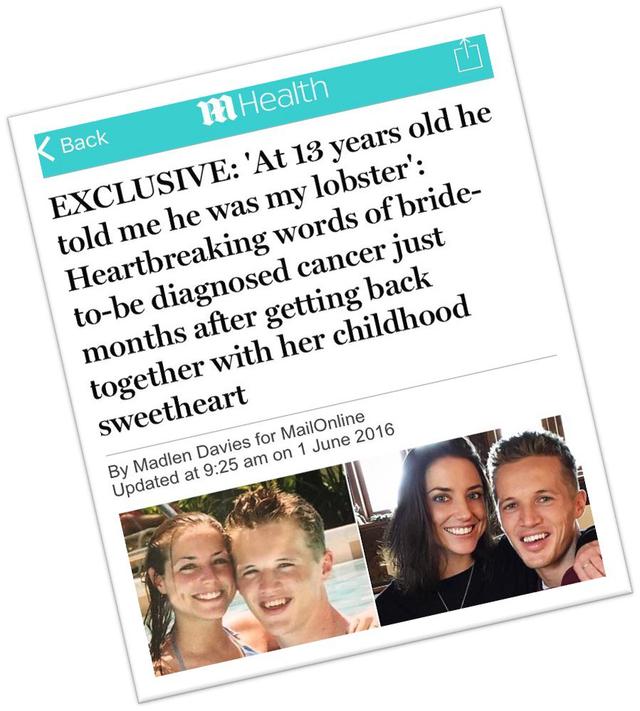
I know what you’re thinking: that’s a great story but what can we take from it?
Well there’s another side to this story.
The Royal Marsden fundraising team met Emmy and Jake on a Wednesday. It was just after Emmy’s weekly treatment and the couple popped in to say they wanted to ‘raise a bit of money’ for the hospital. As they chatted, the team realised that this couple and their story were hugely inspiring.
Now the temptation here would have been to capture their story and pepper it with several on-brand mentions about the Royal Marsden. But instead, they stepped back. Of course they supported them, by introducing the couple to national media and sharing their story on Royal Marsden social media pages, but fundamentally they let Emmy and Jake tell the world their own story.
Why are we here at all?

Now on first glance, this might seem like nothing. Don’t we all use stories of our service users to raise funds?
Well that might be true, but how many of us have truly been brave enough to fully step back and let our service users say exactly what they want to say, rather than making sure they stay ‘on message’ and portray our charity’s brand how we want it to be portrayed? In a world where trust in charities is at an all-time low, perhaps innovation isn’t thinking up new ways to get our charity’s brand out there. Perhaps it’s making sure it takes a back seat.
This isn’t a new thing; Stephen Sutton taught us how powerful a truly genuine story led by the individual himself can be. Stephen raised an amazing amount money for the Teenage Cancer Trust, who kept in the background yet awareness of the charity grew.
So ultimately, don’t we really need to go back to why we’re here at all? Isn’t it a want to support the end service user that motivates donors to give? The charity itself is often just a conduit to allow a donor to make a difference to a cause that they care about.
The Royal Marsden realised that people and their true, non-edited stories are what generates great fundraising. They said:
‘When you find a story like Emmy and Jake’s that wakes you up in your career, you know that’s a story worth putting your brand second for.’
A story that wakes you up in your career
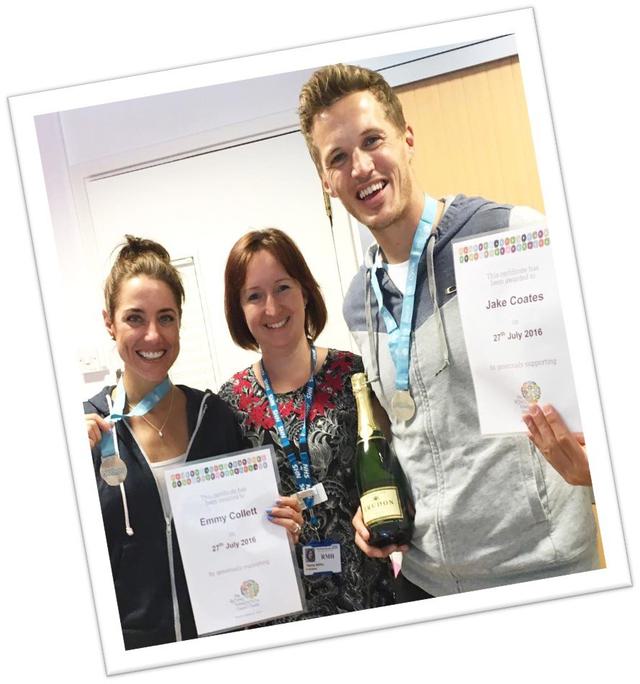
‘A story that wakes you up in your career’ – I really like that phrase and it’s one that’s stuck with me. The Royal Marsden team also told me their biggest challenge with Emmy and Jake wasn’t:
‘worrying that they wouldn’t mention the Royal Marsden the right way in interviews’
but:
‘feeling really attached to them and not wanting to let them down’.
I think there’s something else we can learn from that. If emotional responses raise money, then fundraisers need to think about the last story that genuinely ‘woke them up in their career’ and made them feel something. And that’s the story that the world needs to hear.
What can we learn?
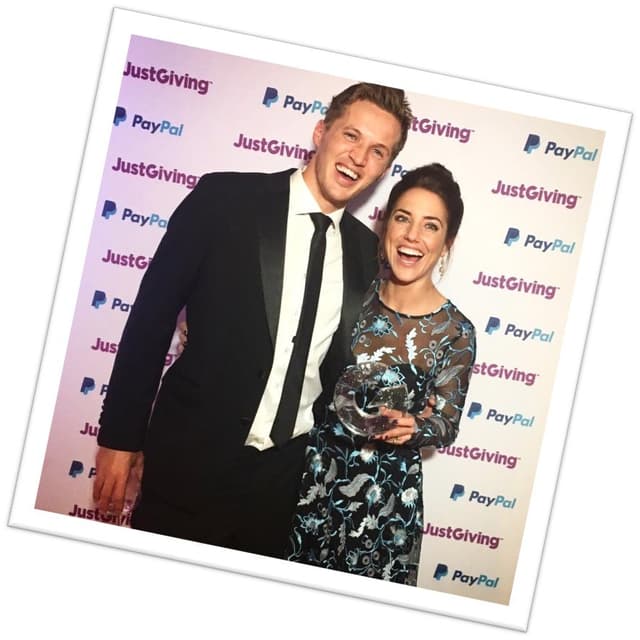
So overall, the story of Emmy and Jake teaches us a number of things:
- Innovation comes in all shapes and sizes. Think about the time you’re spending looking for the next big idea to get your brand out there and instead think about putting your brand second.
- Sometimes you need to do a little less to do a lot more.
- Be open to feeling what those stories make you feel.
- And when you find a great story, don’t censor or change it. Let your Emmys and Jakes speak for themselves and you’re guaranteed amazing results.
If we all start operating this way, perhaps together we can change the face of fundraising. And it couldn’t come at a better time.
Lizzy Carter shared the emotional story of her university friend's determination to raise funds for the Royal Marsden despite battling against stage four cancer at SOFII's I Wish I'd Thought Of That (IWITOT) London 2016.
On June 16 2017, after her battle with thyroid cancer, Emmy passed away surrounded by her family, Jake as ever at her side.



